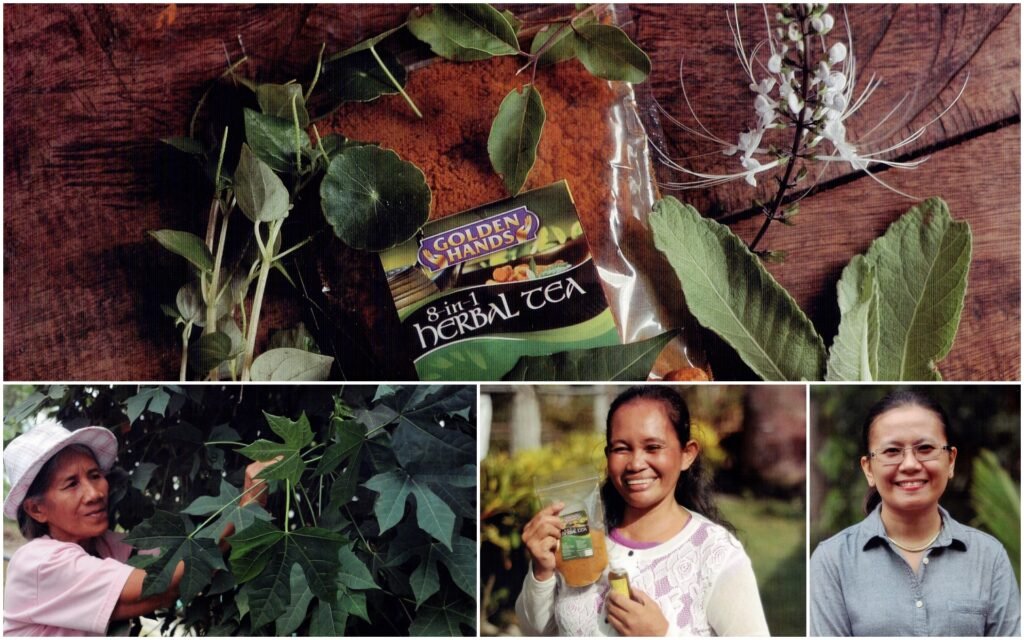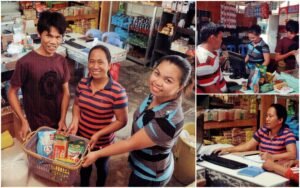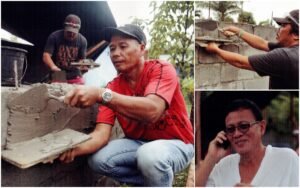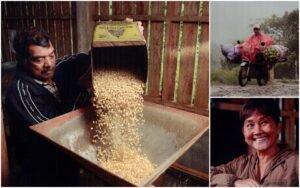
The women of this barangay are changing their world one project at a time.
Like the rest of Malungon in Sarangani Province, Barangay Kiblat’s residents are mostly farmers who make a living out of planting corn, rice, and other crops. The women have traditionally taken care of the home, but many of them yearned to do their part in augmenting the family income and in improving the quality of life of the barangay itself.
Their big break came in 2004 when Kasilak came to Kiblat to encourage them to organize in order to achieve their goal. With an initial 38 members, the women formed the Kiblat Women’s Association and immediately set out to change their world — one project at a time.
Their first venture was a nursery for seedlings that would be used for tree-planting activities. “We planted mahogany, narra, gmelina, and fruit trees in a small area at the barangay hall compound,” association president Lilybeth C. Galang says. Soon various groups were flocking to Kiblat to buy seedlings. “We’ve sold thousands since 2004,” Galang says.
In 2012, the association’s then-president, Marilou Absin, attended a Church-led training on making tea from turmeric, a root known for its medicinal value. Realizing its potential, Absin proceeded to reformulate the beverage, adding new ingredients to enhance its taste and beneficial effects.
What she ended up with was the Golden Hands 8-in-1 Herbal Tea, an all-natural powdered drink containing turmeric, lagundi, sambong, sinao-sinao, goto cola, balbas-pusa, banaba, and sugar. “It took Marilou three years to develop the current formula,” Lilybeth says. “It was her last project before she died in August 2015.”
When it was time to produce the tea, Kasilak extended help by providing pots, utensils, and other equipment. The members themselves provided a counterpart, chipping in each to buy other materials. Village officials provided a room inside the barangay hall where the product could be manufactured.
At first the production was slow and difficult because much of the work had to done manually. “We had to pound the turmeric by hand,” Lilybeth says. The Department of Trade and Industry (DTI) stepped in by providing a juicer, a packaging machine, and other equipment that substantially reduced the work load.
To house the new machines, the association put up a small building beside the barangay hall using construction materials provided by the Department of Agrarian Reform (DAR). The local government of Malungon provided labor, while the barangay contributed additional funds.
With a more stable production, the herbal tea has found a steady market. The members have also applied for Food and Drug Administration (FDA) approval so they can sell more. “We can place them in big department stores and even sell them abroad,” Galang says.
Malungon Mayor Ma. Theresa “Tessa” Constantino has seen how the association has grown and lauds it for contributing much to achieving her goal of improving the lives of the constituents. She also credits Kasilak for the group’s success, saying the partnership has produced solid results.
“The income of Malungon is very minimal, so we need partners for our programs,” she says. “If we depend on our own resources internally, we cannot accomplish much. We are grateful that we can tap NGOs like Kasilak that are willing to give augmentation and assistance.”



